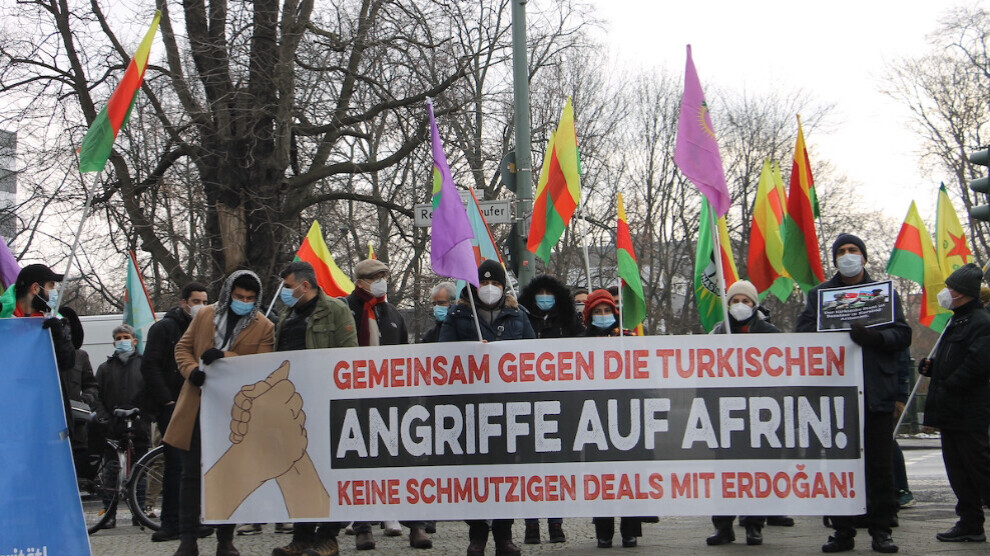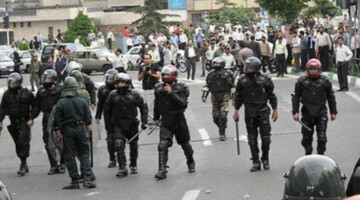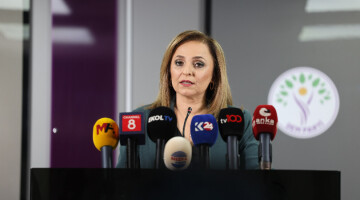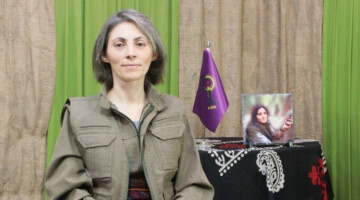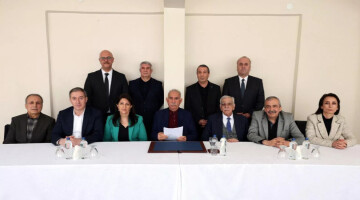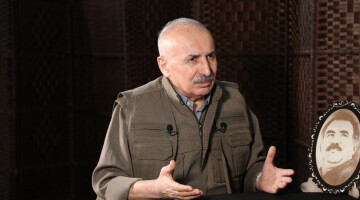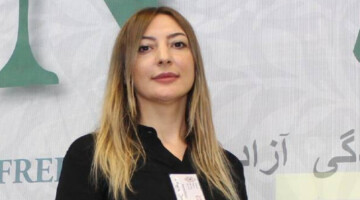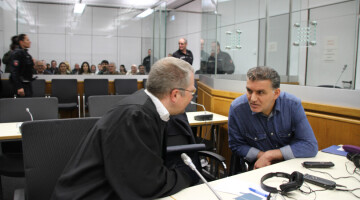Kurds have their friends have organized a protest against the visit of Turkish Defense Minister Hulusi Akar to Berlin on Tuesday.
The Free Kurdistan People’s Assembly, Dest-Dan Women's Assembly, youth movements TCŞ and Teko-JIN, PYD, Kurdistan Communist Party representatives and internationalist groups participated in the protest.
During the protest action, the Free Kurdistan People's Assembly Co-chair, Die Linke State Deputy Hakan Taş, KJA activist Zozan Serhat, members of the umbrella organization of the Yazidi Women's Assembly, Dest-Dan Women's Assembly and the United Revolutionary Movement of the Peoples made speeches.
The activists condemned the Berlin visit of Turkish Defense Minister Hulusi Akar who is deemed responsible for the war, occupation and massacres in Kurdistan and said that this visit is unacceptable.
During the protest, signatures were collected within the scope of the Kurdish women's movement's "100 reasons to prosecute the dictator" campaign.
The protest ended with slogans.
BACKGROUND
Turkish Defense Minister Hulusi Akar has come to Berlin on Tuesday for a working meeting with German Defense Minister Annegret Kramp-Karrenbauer (CDU).
The background is Germany's mediation efforts in the gas dispute between Greece and Turkey in the eastern Mediterranean, he said. According to the statement, the German defense minister had already held talks with her Cypriot and Greek colleagues last week.
Kramp-Karrenbauer welcomed the latest talks between Turkey and Greece in the dispute over natural gas reserves. The CDU politician said she hoped all sides would "seize the opportunity for dialogue to resolve the contentious issues" in the eastern Mediterranean. Turkey is an "important and valued" partner within NATO, she said. "At the talks, we want to exchange our positions on common issues," Kramp-Karrenbauer added.
After an interruption of almost five years, Athens and Ankara resumed talks on Monday to resolve the dispute. Representatives of both sides met for the first time in Istanbul. The talks are to be continued in Athens. Since the discovery of rich gas deposits in the eastern Mediterranean, there has been a fierce dispute over their exploitation. Both EU members Greece and Cyprus and Turkey lay claim to the sea areas in question. Last year, the dispute almost escalated, with NATO partners Ankara and Athens sending warships to the region in August. Turkish President Recep Tayyip Erdogan also recently expressed a "desire" for better relations with the EU.
Akar visits Berlin after Baghdad and Hewlêr
However, the fact that Hulusi Akar only wants to talk to Kramp-Karrenbauer about the gas dispute with Greece just two weeks after his return from Southern Kurdistan (Northern Iraq) does not seem very credible. Especially in view of Erdogan's threats to start another invasion against northeastern Syria, but also in Southern Kurdistan. Akar had traveled first to Baghdad and then to Hewlêr (Erbil) two weeks ago. The main topic of the talks was "joint action in the fight against terror" – referring to the Kurdistan Workers' Party (PKK) and the self-governing structures in the Yazidi settlement Shengal (Sinjar).
Ankara wants EU support for invasion
Ankara apparently did not get the green light from the Iraqi central government for the large-scale offensive in guerrilla areas announced by the Turkish military for the spring, but it was agreed with the KDP leadership in Hewlêr that they would continue to work "shoulder to shoulder" for the common cause. Political analyst Arif Rhein sees Erdogan's conciliatory messages to Europe and supposed efforts to ease tensions in the gas dispute as mere tactics. He says Ankara is currently trying to use fine words and practical concessions in Libya and the eastern Mediterranean to win EU and U.S. support for something very concrete: a large-scale military operation in Southern Kurdistan.

